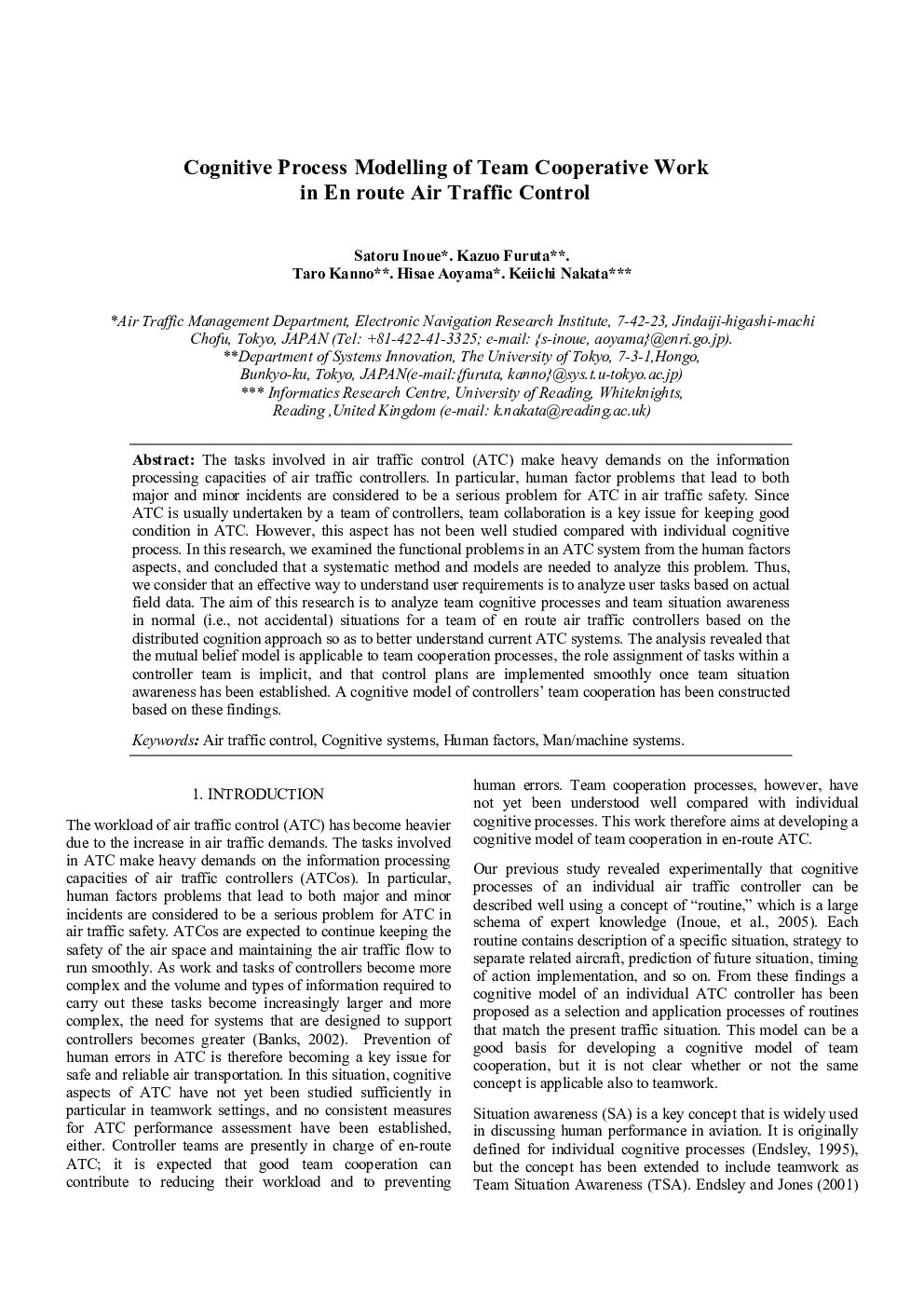| کد مقاله | کد نشریه | سال انتشار | مقاله انگلیسی | نسخه تمام متن |
|---|---|---|---|---|
| 709960 | 892099 | 2010 | 6 صفحه PDF | دانلود رایگان |

The tasks involved in air traffic control (ATC) make heavy demands on the information processing capacities of air traffic controllers. In particular, human factor problems that lead to both major and minor incidents are considered to be a serious problem for ATC in air traffic safety. Since ATC is usually undertaken by a team of controllers, team collaboration is a key issue for keeping good condition in ATC. However, this aspect has not been well studied compared with individual cognitive process. In this research, we examined the functional problems in an ATC system from the human factors aspects, and concluded that a systematic method and models are needed to analyze this problem. Thus, we consider that an effective way to understand user requirements is to analyze user tasks based on actual field data. The aim of this research is to analyze team cognitive processes and team situation awareness in normal (i.e., not accidental) situations for a team of en route air traffic controllers based on the distributed cognition approach so as to better understand current ATC systems. The analysis revealed that the mutual belief model is applicable to team cooperation processes, the role assignment of tasks within a controller team is implicit, and that control plans are implemented smoothly once team situation awareness has been established. A cognitive model of controllers’ team cooperation has been constructed based on these findings.
Journal: IFAC Proceedings Volumes - Volume 43, Issue 13, 2010, Pages 19-24